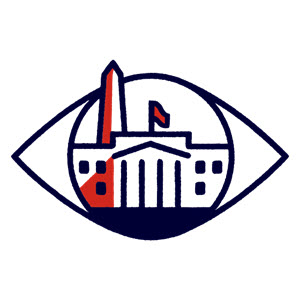IRS Final Regulations on De Minimis Error Corrections for Information Returns

The de minimis error rules apply only for information return accuracy penalties, and do not affect the requirement to pay and report all employment taxes due on Form 941, Employer's QUARTERLY Federal Tax Return.
On December 19, 2023, the Internal Revenue Service (IRS) published final regulations[1] implementing statutory safe harbor rules for "de minimis" errors in information returns filed and payee statements furnished. The de minimis error safe harbor exceptions are found in sections 6721(c)(3) and 6722(c)(3), which were enacted as part of the 2015 Protecting Americans from Tax Hikes Act (PATH Act), Public Law 114-113.
As background, significant IRS penalties can apply for failure to file correct information returns (e.g., Forms W-2, 1099-series, 1095-C, etc.) and/or failure to furnish correct payee statements. Under the PATH Act safe harbor, an error on an information return or payee statement is not required to be corrected, and no penalty is imposed, if the error relates to an incorrect dollar amount and the error differs from the correct amount by no more than $100 ($25 in the case of an error with respect to an amount of tax withheld).
However, the de minimis error rules apply only for information return accuracy penalties, and do not affect the requirement to pay and report all employment taxes due on Form 941, Employer's QUARTERLY Federal Tax Return. Employers should exercise caution in considering whether to correct an aggregate Form 941 without correcting the corresponding Forms W-2, as this would result in discrepancies that may cause IRS notices and assessments.
Accordingly, the preamble to the final rule recognizes that "a note of caution" is warranted "concerning the effect of incorrect information returns on other aspects of tax compliance." The IRS will consider revising the General Instructions for Forms W-2 and W-3 to note that the de minimis rules apply only for information return and payee statement penalty purposes, and not for other purposes, including requirements to pay and report taxes pursuant to provisions of the Code other than sections 6721 and 6722. Further, the IRS rule has no effect on state and local taxes. There are generally no de minimis thresholds below which corrections to state or local Forms W-2 are not required.
Different taxes withheld and reported separately on an information return are considered separately in determining whether the de minimis threshold is reached. For example, if errors on an employee's Form W-2, Wage and Tax Statement, are in the amounts of $20 in Federal income tax withheld, $20 in Medicare tax withheld, and $7.41 in Additional Medicare tax withheld, these amounts would be considered separately for de minimis threshold purposes. Since each amount in the example is less than the $25 threshold for withheld taxes, the de minimis rules apply. The final rule clarifies that the term "tax withheld" in this context includes Social Security, Medicare and Additional Medicare taxes.
The de minimis error safe harbor exceptions apply on a "per statement" basis. For example, if ten employees are determined to have errors on their Forms W-2, which understate Federal income tax withheld by $20 for each employee ($200 in total), the de minimis exception still applies because the error with respect to each statement is less than $25 in withholding.
The "De Minimis" Safe Harbor for Information Returns Corrections is Voluntary
The final regulations also make it clear that regardless of whether the de minimis error safe harbor exceptions provide an exception for not filing or furnishing a corrected statement, a filer may voluntarily file and furnish corrected payee statements.
ADP will assist our client employers who maintain a policy of always correcting errors in information returns and statements in the context of employment tax administration, as explained further below.
Penalties for Incorrect Information Returns are Significant
As background, penalties under IRC Section 6721 and/or 6722 may apply for late filing, or non-electronic filing when electronic filing is required, or missing or incorrect information. Penalties can be $310 per return for 2023, up to a cap of $3,783,000. (Note: Penalty amounts and limits are indexed and may change annually). Penalty amounts may also apply separately under section 6721 and section 6722 (failure to file, and failure to furnish correct payee statements, respectively).
New for 2024: As a reminder, final IRS regulations[2] were issued on February 23, 2023, broadly requiring organizations to electronically file all tax and information returns if the organization is required to file ten or more IRS returns of any kind in a year. This includes information returns such as Forms 1099-series, Forms W-2, and Affordable Care Act Forms 1094 and 1095–C, among others. Penalties will apply to each return filed in paper format if electronic filing is required. The de minimis rule does not apply to non-electronic filing.
Employee Notices and Elections
The PATH Act provides that a payee may elect to receive a corrected information return (e.g., Forms W-2, 1099, etc.), even if the error is under the de minimis threshold. An employer wishing to adopt a policy of not correcting 'de minimis" errors in information returns must notify employees affected in writing of the policy, and must provide a method, as specified, for employees to elect to receive corrected statements. The final regulation provides detailed guidance on specific requirements by which employers must notify employees of the policy and how to make an election.
If a person does not specify the type of form to which the election to correct errors applies and/or whether the election applies only to that year, the payor must treat the election as applying to all applicable payee statements and any succeeding years. Employers must also retain records of any election (or revocation), for as long as that information may be relevant to the administration of any internal revenue law.
Employers Should be Cautious in Considering a "De Minimis" Correction Policy
The de minimis error safe harbor rules apply only for information return and payee statement penalty purposes, and do not affect the requirement to pay and report employment taxes on Form 941, Employer's QUARTERLY Federal Tax Return. The IRS employment tax system is self-reconciling, because aggregate wages and taxes reported on Forms W-2 are compared to the corresponding totals on employment tax returns (such as IRS Form 941). If aggregate Form W-2 totals exceed the corresponding amounts reported on Forms 941, the IRS may assess the difference to the employer, with penalties and interest. Conversely, if aggregate Form 941 totals exceed the corresponding Form W-2 totals, the Social Security Administration may inquire whether some Forms W-2 may have been omitted.
A decision to not correct de minimis wage and tax errors on Forms W-2 could create reconciliation issues, especially considering that "any single amount" of under $25 in withheld taxes could involve many employees. If errors occur, any additional tax due must still be paid and reported on Forms 941, even if the amounts for individual employees are under the de minimis amounts. An employer could adopt a policy of not correcting information returns (e.g., Forms W-2) with qualifying "de minimis" errors, but this policy may result in differences between the corrected employment tax returns and the corresponding (uncorrected) Forms W-2.
Lastly, although not addressed in the final rule, the PATH Act provision has no effect on state and/or local requirements for information return reporting, or payment requirements. Payers should refer to the respective state or local tax authorities for guidance, but other than in states that automatically conform with federal tax laws, there are generally no de minimis thresholds below which corrections to information returns (such as Forms 1099 and W-2) are not required.
Consequently, employers should exercise extreme caution in considering whether to adopt a "de minimis" threshold for making corrections to information returns and consult with appropriate legal and tax professionals.
Effective Date
Proposed regulations were issued on October 17, 2018 (REG-118826-16)[3] to implement the de minimis error safe harbor provisions for payee statement penalties. The final rule made only minor changes to the proposed rule. The final regulations generally supersede the proposed rules (Notice 2017-09) with respect to information returns required to be filed and payee statements required to be furnished on or after January 1, 2024.
For additional information, see TD 9984, De Minimis Error Safe Harbor Exceptions to Penalties for Failure to File Correct Information Returns or Furnish Correct Payee Statements.
ADP Compliance Resources
ADP maintains a staff of dedicated professionals who carefully monitor federal and state legislative and regulatory measures affecting employment-related human resource, payroll, tax and benefits administration, and help ensure that ADP systems are updated as relevant laws evolve. For the latest on how federal and state tax law changes may impact your business, visit the ADP Eye on Washington Web page.
ADP is committed to assisting businesses with increased compliance requirements resulting from rapidly evolving legislation. Our goal is to help minimize your administrative burden across the entire spectrum of employment-related payroll, tax, HR and benefits, so that you can focus on running your business. This information is provided as a courtesy to assist in your understanding of the impact of certain regulatory requirements and should not be construed as tax or legal advice. Such information is by nature subject to revision and may not be the most current information available. ADP encourages readers to consult with appropriate legal and/or tax advisors. Please be advised that calls to and from ADP may be monitored or recorded.
If you have any questions regarding our services, call 855-466-0790.
ADP, Inc.
One ADP Boulevard, Roseland, NJ 07068
adp.com
Updated on January 10, 2024
[1] TD 9984 De Minimis Error Safe Harbor Exceptions to Penalties for Failure to File Correct Information Returns or Furnish Correct Payee Statements.
[2] TD 9972 Electronic-Filing Requirements for Specified Returns and Other Documents, 2/23/2023; 88 FR 11754.
[3] Federal Register 83 FR 52726. See also Notice 2017-09 at www.irs.gov/pub/irs-drop/n-17-09.pdf.



